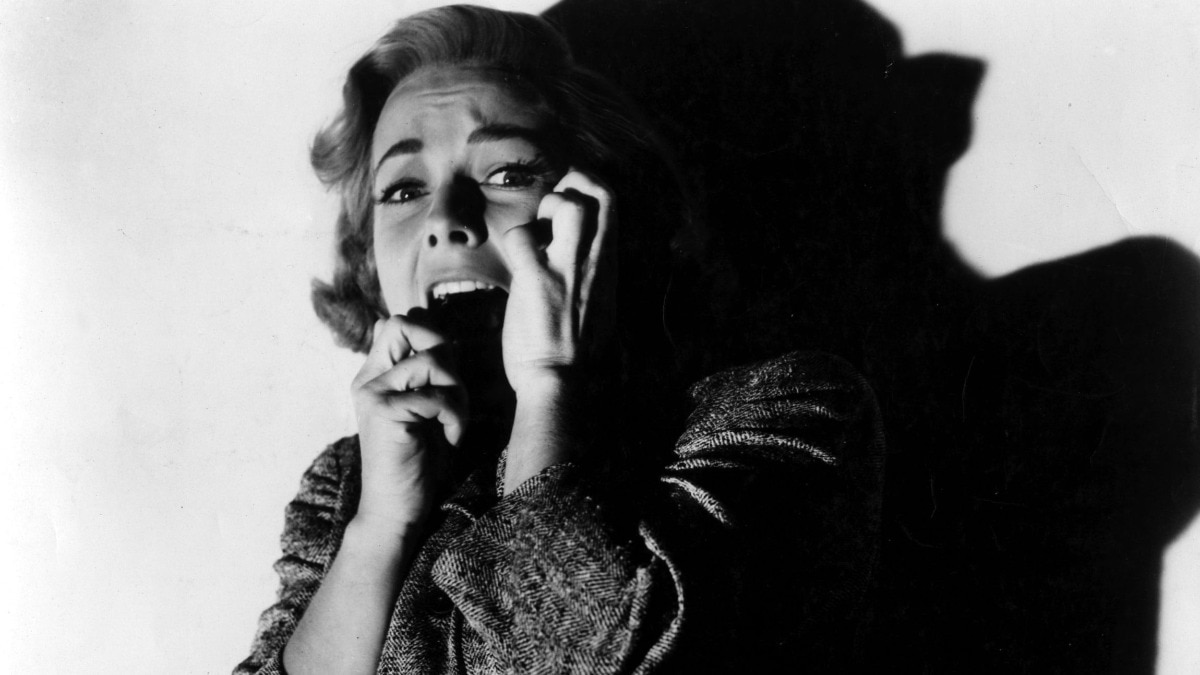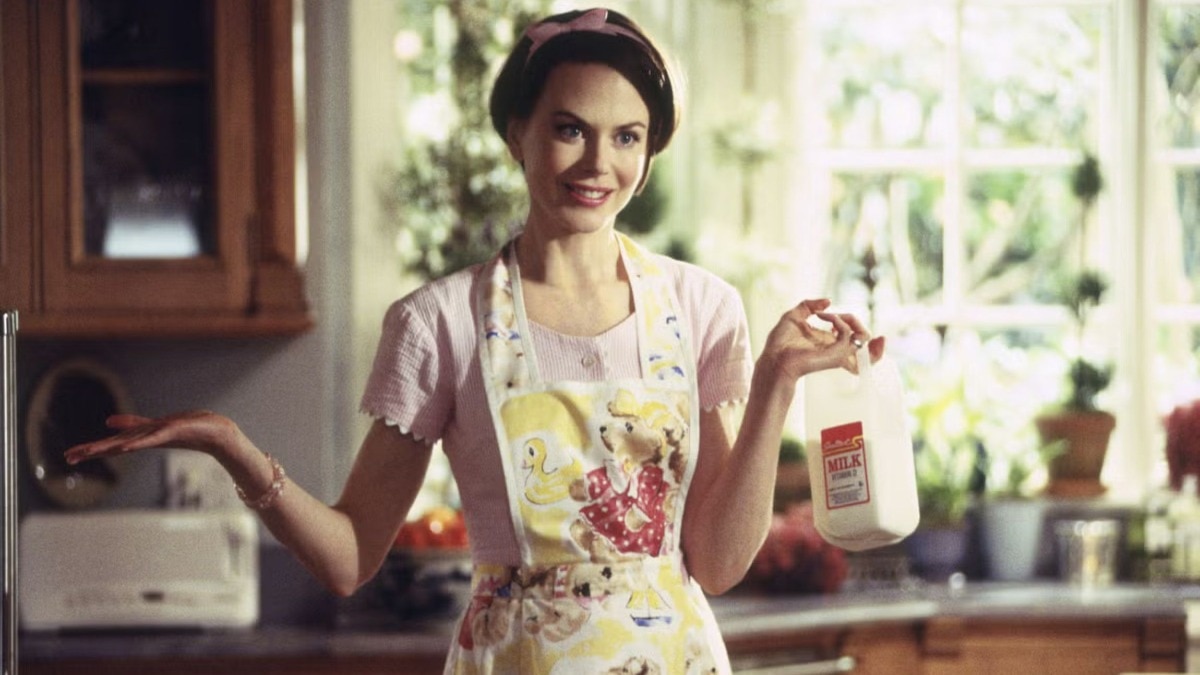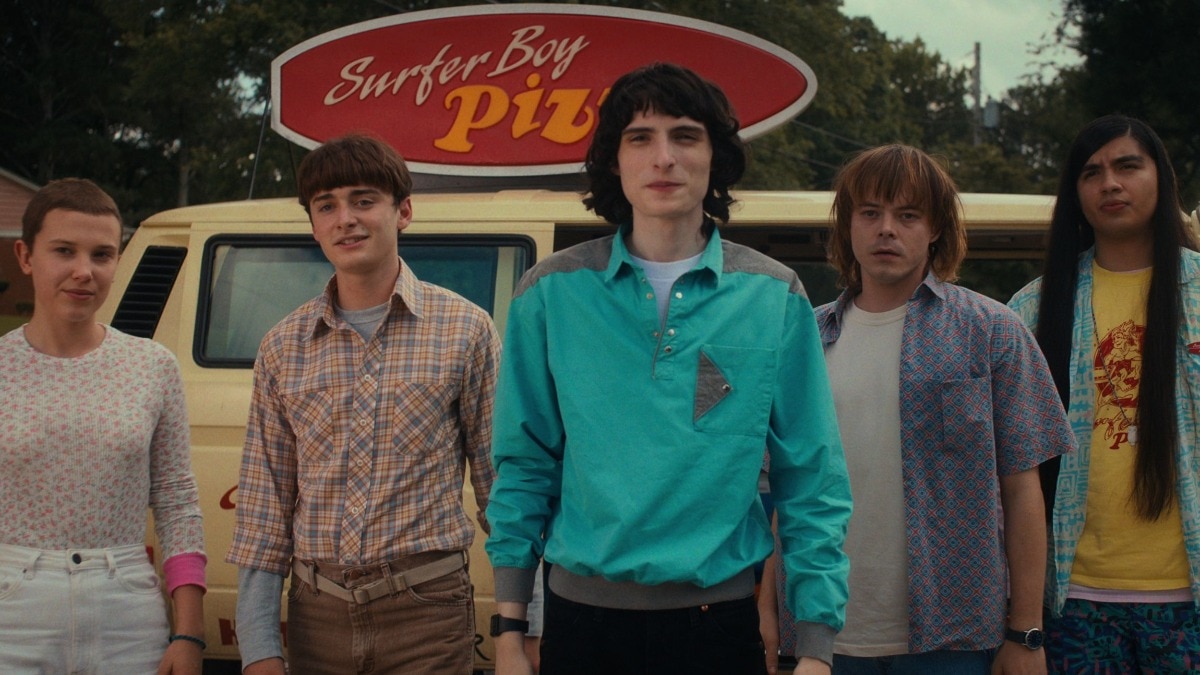Here's why watching the same TV shows and movies over and over again is so comforting
Rewind, rewatch and repeat...


Let’s set the scene, shall we? It’s a lazy Sunday afternoon and you’ve just woken up from a nap to the smell of your mother's adhrak chai. You have a ‘Sunday-Funday’ plan in mind—curl up on the couch and binge-watch the latest. Cut to 45 minutes later. Your chai is colder than the rain outside and you’re still scrolling through the OTT homepage with a zombie-like expression. Finally, you give up and switch on the pilot episode of Schitt’s Creek not even caring that you’ve watched it so many times that ‘Ewww David’ is a phrase that works its way into your everyday conversations.
Have you ever wondered why so many people prefer watching their favourite shows or movies over and over again? Why did The Office—a mockumentary about a seemingly regular workplace that ended almost a decade ago (2013)—clock in over 87 billion minutes of viewership in 2020 in America alone? Is it a habit? Indecision? Of course, this doesn’t mean that people won’t line up to watch the new Avengers movie or block an entire weekend to binge the new season of Stranger Things. But that’s not what we are talking about. We are exploring why so many of us are inspired to press play on the stories that we’ve watched so many times we can recite them like a nursery rhyme, by heart.
When we spoke to Dr Nisha Khanna, a counselling psychologist and certified EQ Coach about why watching the same movies and shows over and over again feels like hot opinion pakoras on a rainy day, she said, “Repetition basically breeds affection.” Only if it was always that simple. The further you dig, the more you learn about your psyche.

According to Dr Jalpa Bhuta, a psychiatrist at Global Hospital, familiar content is much less cognitively demanding, making it an ideal choice on most days. Basically, watching Rachel and Ross fight about whether they were on a break or not on FRIENDS is much easier to absorb than watching something you’ve not watched before. Dr Bhuta says, “A movie we've already seen seven times is wonderfully easy to absorb. The scientific term for this is "mere exposure effect," which means that we enjoy something more just because we've been exposed to it earlier.”
Indecision, indecision
Considering we live in a world where OTT platforms are like overpopulated warehouses of content, opening one feels like you’ve unlocked a new realm of the universe. The seemingly neverending sea of titles and trailers that start playing when you hover over something is just added pressure. Unless you’re an extremely dedicated movie buff, chances are that you waste a good 30 minutes just deciding what to watch. It’s ironic, isn’t it? The more options we have, the more indecisive we are. This is exactly what a study conducted by professor Sheena Iyengar at Columbia University found. They came to the conclusion that having too many options or alternatives often leads us to feel dissatisfied. This is because once we’ve picked something, we can’t help but wonder if another option would be a better choice. We’re the hustle generation. We make tough decisions all day every day. It’s the last thing we want to do on our time off. That is another reason so many of us settle for a rerun. So what if it's not the road less taken?
Don’t get us wrong, through the course of the pandemic we've all become closer to our Netflix subscriptions than we are to our friends. But even then, after a long day at work, a majority of people turn to Brooklyn Nine-Nine and not the new season of whatever social media is raving about. It’s kind of therapeutic to just switch off and escape into a non-existent world we know so well.

When asked why our generation's preferred form of relaxation is re-watching shows, Ishina Choudhary, counselling psychologist and founder of Insight Alchemy, said, “Dopamine, a chemical, is released in our brain, which gives us a high and activates the part of our brain responsible for “reward” functions, making us feel good. Over time, our brains produce less dopamine from the same level of activity. We build up a tolerance that leads to more craving to binge watch and watch again and again, and also it releases stress.”
It's a coping mechanism!
This begs the question, are we really addicted to re-consuming content or are we using these old movies as a coping mechanism? Choudhary explains that this phenomenon of reruns has become very common, especially in the last 15 months (thank you, pandemic!). According to her, this may be the result of us having a higher cognitive load (the amount of information that working memory can hold at one time) than normal. Choudhary says, “New shows present unexpected twists and turns, while familiar shows give our brains a rest. Rewatching shows is a way of using nostalgia as a form of consolation. It makes us feel good when we reminisce and escape the present moment for a little while.”

While rewatching Gossip Girl we know who is behind the infamous website. While rewatching How I Met Your Mother, we know who it is that Ted is looking for. After tens of re-watches, there is no element of surprise left. But it’s not about that anymore. Over time, these shows turn into a coping mechanism, a security blanket if you will.
Dr Bhuta agrees. According to her, Rewatching our favourite TV series and movies, or rereading books is a popular way to escape from the actual world. Rewatching our favourite childhood films, in particular, has been shown to help us feel calmer, relaxed, and even grounded during times of heightened anxiety or sadness. She says, “Multiple viewings of the same entertainment piece underline that there is order in the world and that it may produce a sense of safety and comfort on a primordial level.”
Satisfaction abound
There is a certain sense of satisfaction and ease that comes with knowing what’s going to happen next. For instance, when He-Who-Must-Not-Be-Named casts a killing curse on Harry Potter, we aren’t anxious or worried because we know he doesn’t die. And when he does come back and battles Voldermort until he is destroyed, we feel immense fulfilment. Instead of fear, we’re filled with comfort just knowing our protagonist is safe and he prevails over the monster.
Dr Khanna went on to explain, “Watching the same shows over and over again brings some sort of safety and comfort on a permanent level. It instils a sense of security, warmth, or wellbeing.” She adds, “People also tend to watch the same shows and movies because that negates the feeling of disappointment and dissatisfaction. When you’re tired, these familiar shows help you reenergize and restore the feeling of self-control. Especially when you’re anxious.”
Nostalgia sells
Nostalgia is one of the main reasons people tend to watch and rewatch their favourite pieces of content. This is especially true when we rewatch movies and shows we loved as a child. We feel all fuzzy inside—a sense of satisfaction during unpredictable times. This explains why despite watching Baby’s Day Out as many times as an average person has, the sound of that baby’s laugh when he outsmarts the kidnappers makes us giggle.

Choudhary explains why our childhood movies and films have that calming effect when we watch them as anxiety-ridden adults. It’s basically a way to control our emotions when we feel like the sky is crumbling down around us. She says, “In stressful times, our brains and bodies desire comfort and one of the places we find comfort is in entertainment we have consumed previously. The calming feeling of re-watching movies is 'experiential control', which provides 'emotional regulation'. To put it simply, because you know the ending already, you also know how it will make you feel.”
Think of these movies as a time machine of sorts. When you watch Tom running after Jerry, you’re transported to a simpler time. Sentimental feelings blended with bouts of laughter and a positive autobiographical nostalgia make for an utterly irresistible cocktail. Dr Khanna agrees. She says, “It’s a way for you to keep a particular time of your life alive. Like a physical comfort in form of warmth."
So, rest assured, the next time you’re scrolling through an OTT platform homepage for seemingly forever, there is no shame in going back to FRIENDS and watching Ross, Rachel, and Chandler try to get a humungous couch up a narrow staircase. You can also yell ‘Pivot’ with Ross and no one can judge you for it.
Photos: Pexels
Lead image: Still from FRIENDS










